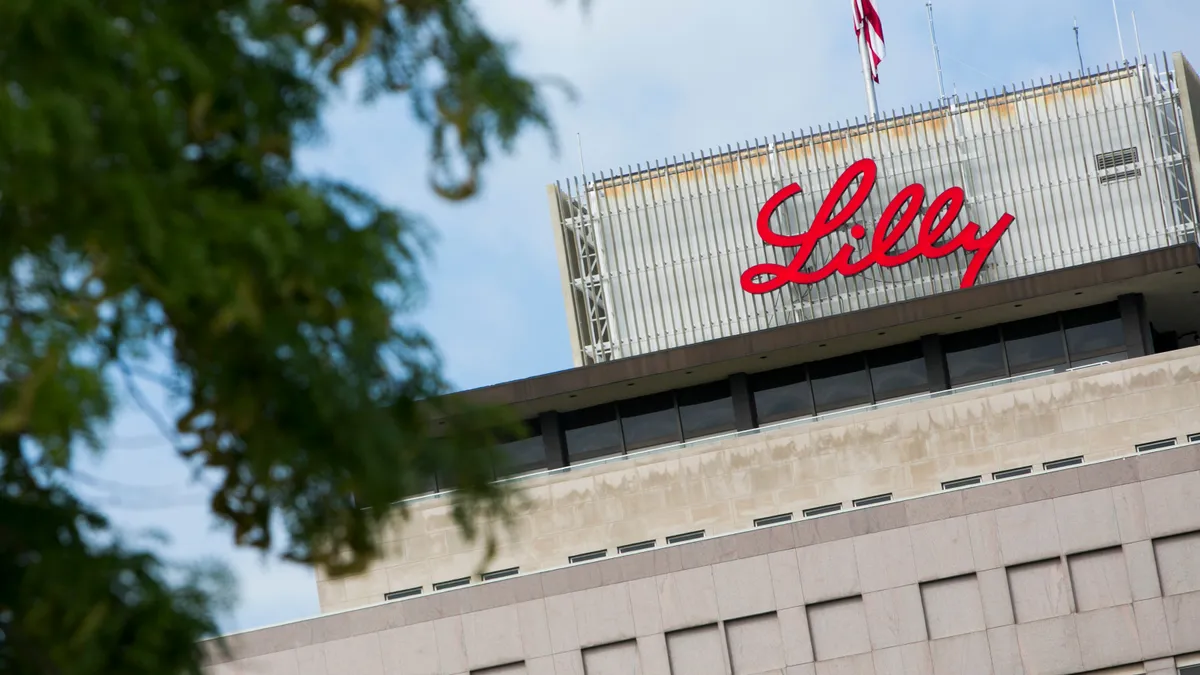Dive Brief:
- The Food and Drug Administration has rejected Eli Lilly’s request to approve an experimental ulcerative colitis drug due to manufacturing issues, delaying the launch of one of the company’s top prospects.
- Lilly said April 13 it was “working diligently with the FDA” to resolve the agency’s concerns and hopes to begin selling the medicine, known as mirikizumab, as soon as possible. Lilly didn’t provide more details, though one Wall Street analyst indicated that the agency unearthed problems during a pre-approval inspection at a site in Indianapolis.
- Lilly is hoping mirikizumab, which blocks a specific part of a protein called IL23p19, will become the first drug of its kind to get to market as an ulcerative colitis treatment. The drug succeeded in Phase 3 testing last year and is currently in another late-stage study for Crohn’s disease that could produce results later this year.
Dive Insight:
Mirikizumab is one of a slate of anticipated drug launches Lilly is relying on to add billions more to its yearly sales totals.
Others include the fast-selling diabetes drug Mounjaro — which could soon be cleared as a weight-loss treatment — as well as the Alzheimer’s medicine donanemab and the eczema treatment lebrikizumab. In January, its cancer drug Jaypirca was approved for mantle cell lymphoma.
Though overshadowed by Mounjaro and donanemab, mirikizumab is still expected by analysts to be a blockbuster for Lilly. SVB Securities analyst David Risinger has estimated the company could generate peak yearly sales of $2 billion, despite the tough competition from other drugmakers.
If eventually approved, the drug would be added to a range of biologic drugs approved to treat ulcerative colitis, among them AbbVie’s Humira and Rinvoq as well as Johnson & Johnson’s Stelara. Competition is set to grow, too, as other, similar drugs are working their way through testing. Not all patients respond well or remain in remission, however, leaving room for new treatments like mirikizumab.
In its statement, Lilly stressed that the agency didn’t have concerns with the data it’s compiled for mirikizumab. "We remain confident in mirikizumab's pivotal Phase 3 clinical data and its potential to help people with ulcerative colitis," said Patrik Jonsson, the president of Lilly’s immunology division, in the statement.
Evercore ISI analyst Umer Raffat added, in a research note, that the issues at Lilly’s manufacturing site don’t impact the supply of other products in its portfolio, including Mounjaro, that are also produced in Indianapolis.












